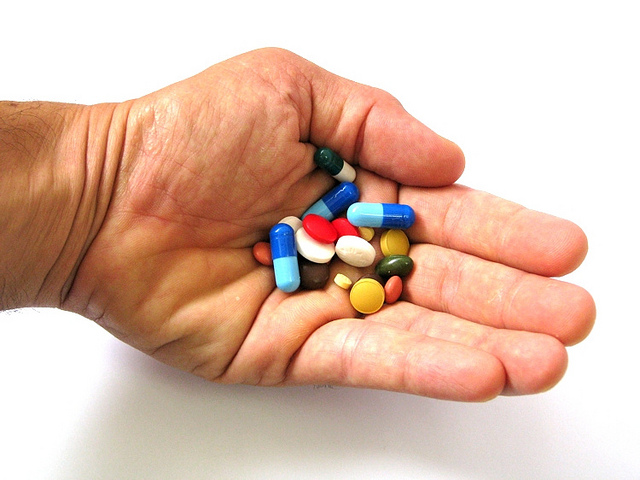
Psychedelics could become a new class of anti-depressants, a number of small-scale clinical trials suggest. Unsurprisingly, these recent developments are proving to threaten one of the Big Pharmas most profitable medications: Selective serotonin reuptake inhibitors (SSRIs).
Globally, an estimated 350 million people of all ages, suffer from depression. Around one in five patients fail to respond to any treatment. As a result, millions of people worldwide are left with no choice but to keep on searching for a medication or treatment method that will help pull them out of the dark hole, which consumes them.
Since the selective serotonin reuptake inhibitors (SSRIs) became available in the 1980s, no new class of antidepressant drug has emerged. In fact, many of the large pharmaceutical companies have no intention of improving the effectiveness of SSRIs, or create a new and more effective drug.
In the past decade, the number of psychopharmacological drugs research programmes in larger drug firms has shrunk by 70%, according to Harry Tracy, creator of the newsletter NeuroPerspective.
“In general the larger companies have walked away from psychiatry,” he says. “There are a few companies who have maintained efforts in the area but 70% tells you it’s been a pretty remarkable departure. Many withdrew from neuroscience entirely.”
However, this has not stopped companies from pushing antidepressants on patients, worldwide. Pharmaceutical companies promote selective serotonin reuptake inhibitors (SSRIs), as these drugs require the patient to take these medications daily, for the rest of their lives. This business model for antidepressants is simple, yet effective.
However, while the pharmaceutical companies continually rake in the money from these daily prescription drugs, hundreds of thousands of patients suffering from depression are left out of pocket, dependent of drugs that – in a large percentage of patients – do not help their condition in the long-term.

SSRIs are fast becoming one of the most widespread medicines in the world, with 11% of Americans over the age of 12 taking an antidepressant. Usage of these drugs are on the rise worldwide – naturally, this is great news for the pharmaceutical giants.
These statistics are hardly surprising, especially since alternative pharmaceutical treatments aren’t available to the majority of patients. While marijuana has proven successful in the treatment for many patients suffering mental disorders in the U.S., medicinal marijuana is yet to be legal in every state and nation.
Like marijuana, psychedelics are not legal in many nations. As a result, in order to use psychedelics to treat those with mental disorders, government must reclassify psychedelics so they can be used for therapeutic purposes. However, due to expense and a lack of results from large, randomised-controlled clinical trials, the process of bringing psychedelics to the market would be extremely difficult and costly.
So, if testing of these drugs is so expensive and difficult to achieve on a large scale, how do we know that psychedelics could be a new form of antidepressants? Well, over the last few years, a number of small studies have provided a strong theoretical basis for the claim.
As we reported earlier this year, researchers from Imperial College London, United Kingdom, announced that a clinical trial to cure depression with magic mushrooms, has showed great success. In addition, studies also suggest both LSD and Ketamine could also prove to be effective treatments for those with mental disorders, such as depression and anxiety.
However, as these drugs are a potential threat to large pharmaceutical companies, the war on drugs has continued to tear apart our society and its moral values. In the end, it all comes down to money. While millions of people struggle to live and function with the cloud of depression hanging over their heads, pharmaceutical companies are reveling in the profits of a medication that, in most cases, is ineffective.
Image: Flickr, Victor
You want to support Anonymous Independent & Investigative News? Please, follow us on Twitter: Follow @AnonymousNewsHQ
This article (Are Psychedelic Drugs The Future Of Antidepressants?) is a free and open source. You have permission to republish this article under a Creative Commons license with attribution to the author and AnonHQ.com.




